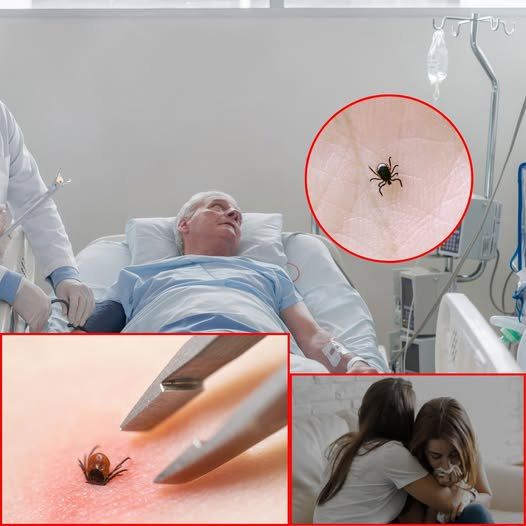As the weather warms and more people head outdoors, a Massachusetts family is sounding the alarm after a tragic and unexpected loss. Kevin Boyce, 62, died in spring 2024 after contracting a rare but deadly tick-borne illness — and now his loved ones are sharing his story in hopes of saving others.
A Sudden and Devastating Illness
In April 2024, Kevin was bitten by a tick, likely without ever noticing. Within days, he began to suffer from intense headaches, vomiting, and flu-like symptoms. Things quickly took a terrifying turn.
“He collapsed at home and was rushed to Massachusetts General,” said his daughter Erin. “It all happened so fast.”
Doctors diagnosed Kevin with Powassan virus (POWV) — a rare and often severe disease spread by infected ticks. Despite aggressive treatment in the intensive care unit, the virus caused significant swelling in Kevin’s brain.
“His brain had blown up so much from the encephalitis,” Erin told CBS News. “It was horrifying, but we knew what Kevin would have wanted — we had to let him go.”
Just weeks after his hospital admission, Kevin passed away, leaving behind his wife, two sons, and a young granddaughter.
A Family’s Warning
The Boyce family is now speaking out to raise awareness about the risks of tick bites — especially from the Powassan virus, which has seen a rise in reported cases across the U.S. in recent years.
“We just want people to know what to look out for,” said Erin. “Be careful. Be aware of ticks — especially if you’ve been outside.”
In 2024 alone, 54 cases of Powassan virus were reported nationwide — 12 of them in Massachusetts. Though still rare, the illness can be deadly. According to Yale Medicine, roughly 1 in 10 people with severe POWV infection do not survive, and many others are left with permanent neurological damage.
What You Need to Know About Powassan Virus
Powassan virus is transmitted through tick bites and can spread to the human bloodstream in as little as 15 minutes after the tick attaches — much faster than Lyme disease. Symptoms typically appear one week to one month after exposure and may include:
- Fever
- Headache
- Vomiting
- Weakness
- Confusion
- Seizures
- Loss of coordination
- Difficulty speaking
Severe cases can cause brain inflammation (encephalitis) or spinal cord swelling (myelitis) — conditions that can be life-threatening.
Protecting Yourself and Your Loved Ones
Currently, there is no vaccine or specific treatment for Powassan virus. Prevention is the best defense. Here’s how to protect yourself, according to the CDC and NIH:
- Wear long sleeves and pants when in wooded or grassy areas.
- Tuck pants into socks or tape clothing openings to keep ticks out.
- Use repellents containing DEET, permethrin, or picaridin.
- Stick to the center of trails — ticks tend to gather in bushes and tall grass.
- Wear light-colored clothing to more easily spot ticks.
- Check yourself, your children, and pets for ticks immediately after being outdoors.
- Remove ticks with tweezers as soon as possible.
- Shower promptly and wash clothing in hot water to kill any hidden ticks.
A Life Cut Short — And a Message That Could Save Others
Kevin Boyce’s family hopes their painful experience will encourage others to take tick prevention seriously.
“This could happen to anyone,” Erin said. “It happened to us — and it changed our lives forever.”
Let Kevin’s story serve as a reminder: a single tick bite can have devastating consequences. Stay safe, stay informed, and stay tick-aware.
